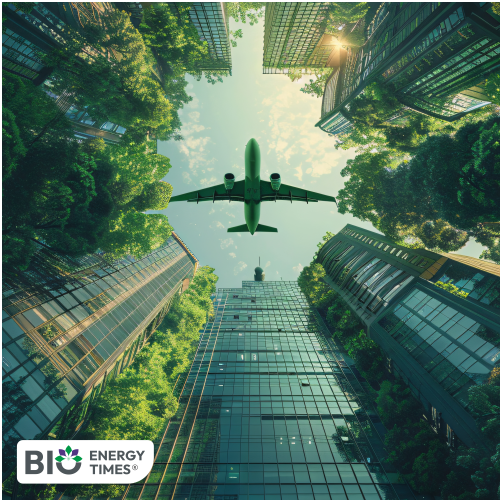Pasir Gudang: Plantation and Commodities Minister Datuk Seri Johari Abdul Ghani said Malaysia’s first commercial production of sustainable aviation fuel (SAF) represents a major step in the country’s efforts to reduce aviation emissions and strengthen its position in the regional clean-fuel market, reports New Straits Times.
He said the launch comes at the right time, as sectors that are difficult to decarbonise — especially aviation — face increasing pressure to meet global net-zero goals.
“To achieve our national targets, we must also address high-emission sectors, including aviation.
“Globally, the International Civil Aviation Organisation (ICAO) has set an ambitious goal to reach net-zero carbon emissions by 2050, and SAF has been identified as a key way to reduce emissions in this industry,” Johari said during his working visit to the facility today.
Malaysia has committed to reaching carbon neutrality by 2050 under the Paris Agreement.
SAF is a low-carbon jet fuel made from waste and renewable materials. It can cut aviation emissions without requiring changes to aircraft or airport facilities.
EcoCeres Renewable Fuels Sdn Bhd, the country’s first SAF producer, has been supplying commercial-grade fuel from its Tanjung Langsat plant since October. The facility is capable of producing up to 350,000 tonnes of SAF per year, establishing Malaysia as an emerging supplier of low-carbon aviation fuel in the region.
Those present at the launch included the ministry’s secretary-general Datuk Yusran Shah Mohd Yusof; Biomass and Biofuel Division undersecretary Dr Sang Yew Ngin; EcoCeres co-chairman James Tam; and executive vice-president Dannis Poon.
Johari noted that several national policy documents support the SAF initiative, such as the Aviation Decarbonisation Blueprint and the National Energy Transition Roadmap, which lay out phased plans to cut emissions in the aviation sector and place SAF at the centre of these efforts.
“To strengthen our commitment, the ministry is working with industry players and the transport ministry to introduce a national SAF blending mandate. The plan includes an initial requirement of 1 per cent SAF for flights departing Kuala Lumpur International Airport,” he said.
He also said that securing enough raw materials will be essential.
“Malaysia has identified used cooking oil (UCO) as the main raw material to maximise emissions reduction. Since July 2023, an awareness campaign with Petronas Dagangan Bhd has collected more than 1,200 tonnes of UCO from nearly 66,000 Malaysians at 89 collection stations.
“This shows that households can earn extra income while supporting the circular economy. We must continue expanding our collection network and include other raw materials such as empty fruit bunch (EFB) oil and palm oil mill effluent (POME) oil to meet rising demand,” he said.
EcoCeres’ plant is the first in Malaysia to produce SAF certified under the International Sustainability and Carbon Certification (ISCC) for both ICAO’s global emissions scheme and the European Union.
With an investment of more than US$800 million (RM3.31 billion) and over 300 jobs created, Johari said the plant’s wider economic impact will help strengthen the country’s biofuel and biomass sectors.














